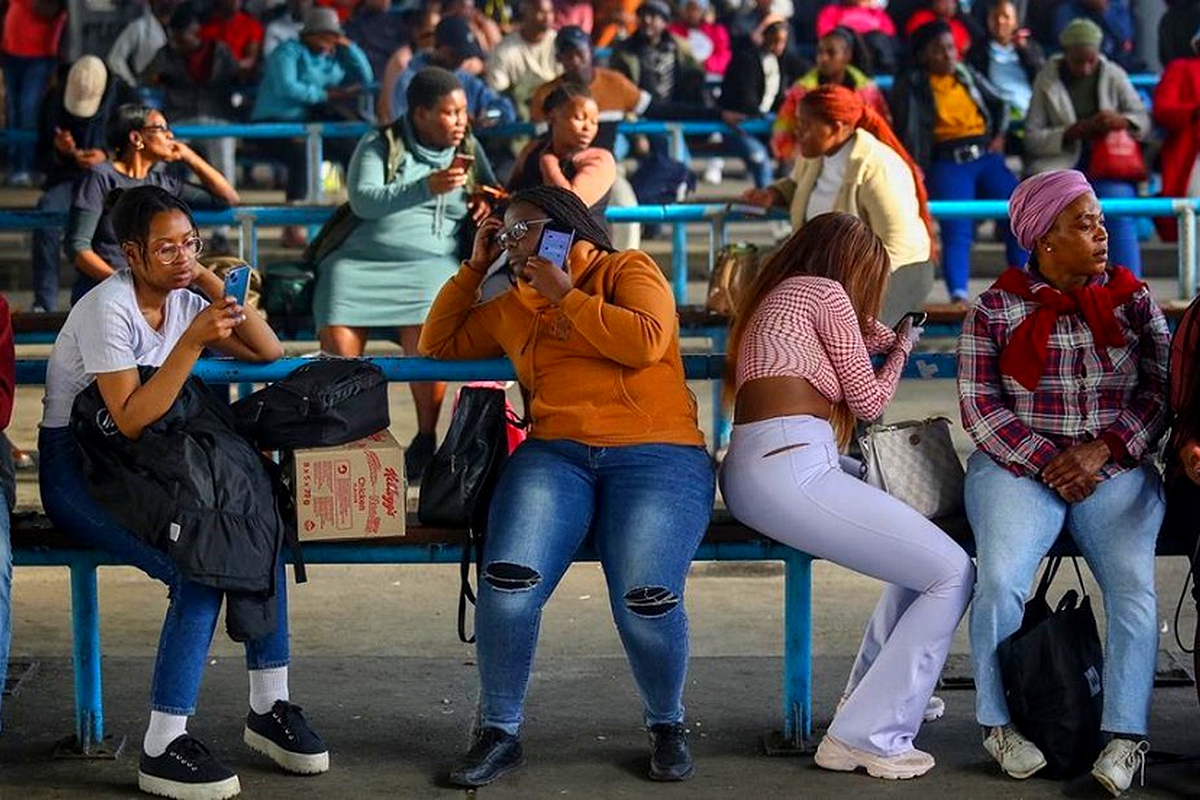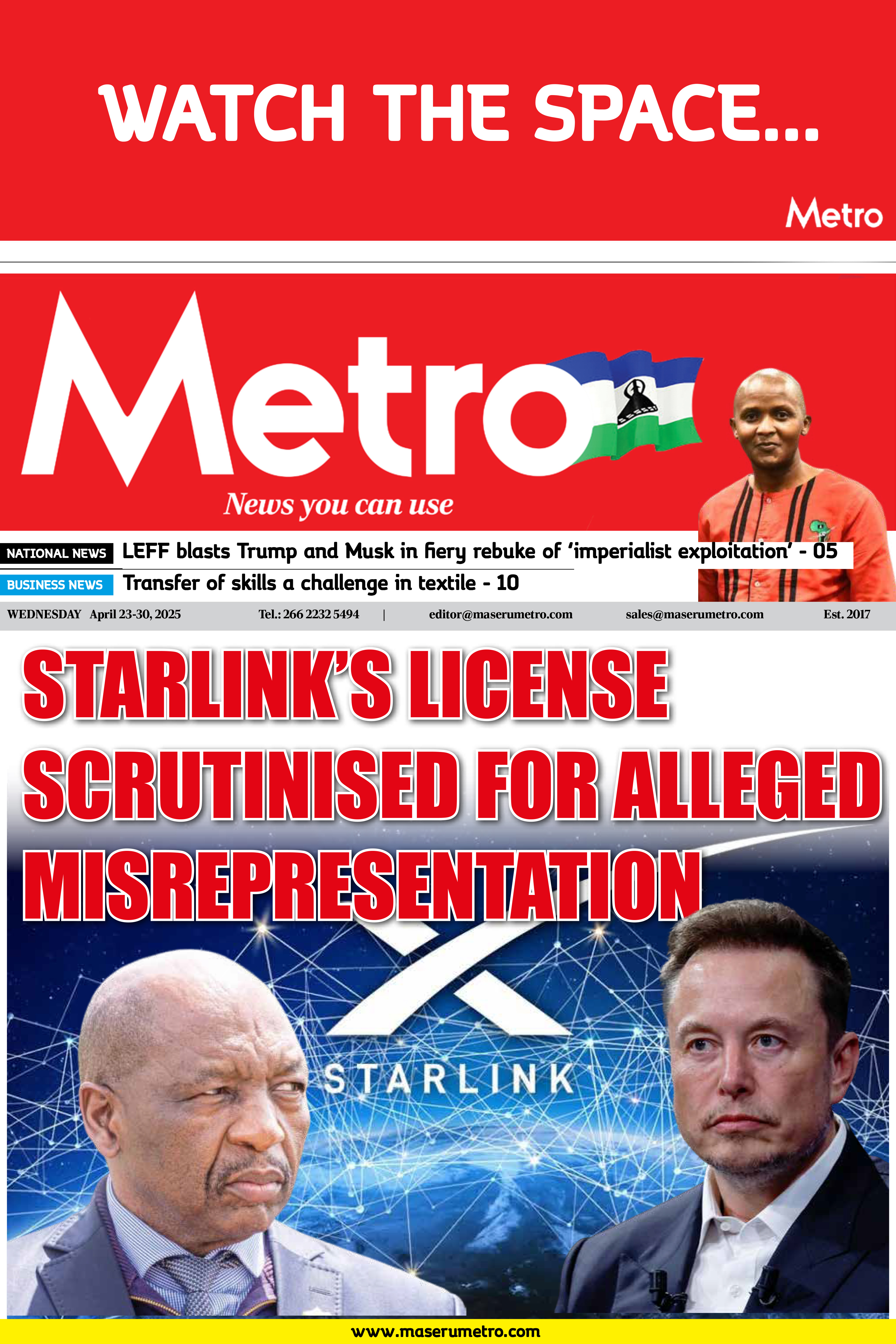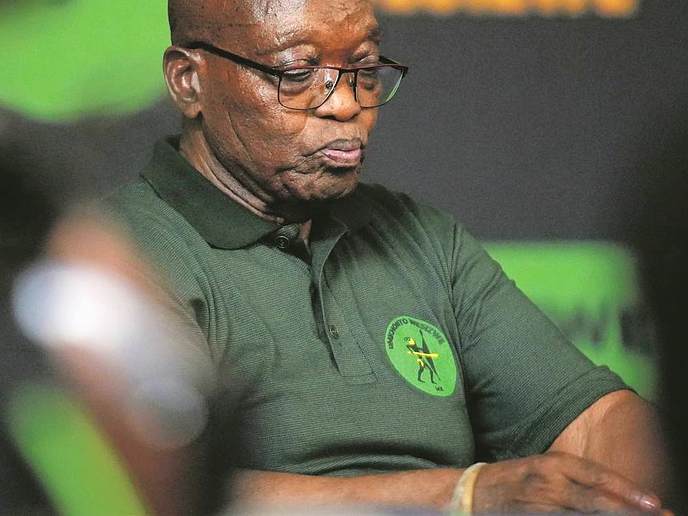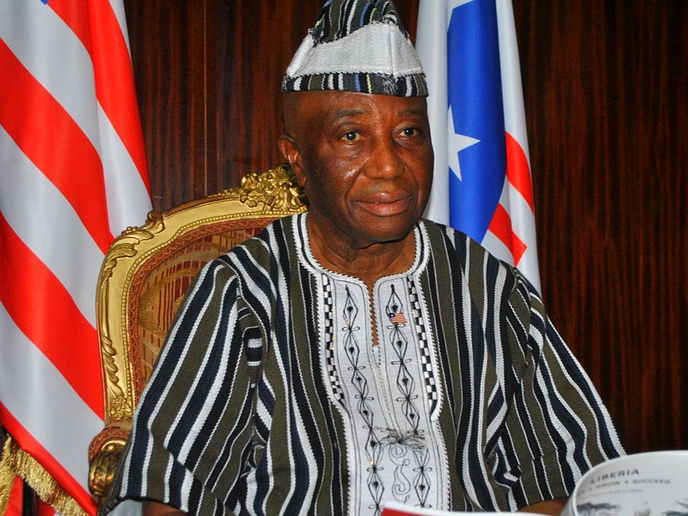AS commuters across Cape Town scrambled to find a way home on Thursday after minibus taxi drivers withdrew their services, the taxi industry wants the national government to intervene, while the city has promised to act against thuggery.
africa
Aug. 4, 2023
DAILY MAVERICK
5 min read
Taxi industry, City of Cape Town harden their stances amid strike violence

Stranded commuters at a Cape Town taxi terminal
Story highlights
The mayhem began almost an hour after the South African National Taxi Council (Santaco) announced on Thursday it would embark on a seven-day strike.
Taxi owners and drivers, who were attending Santaco’s meeting in Makhaza, Cape Town, to decide on whether to strike, walked out of the venue and pelted a law enforcement vehicle with stones.
When word of the strike reached drivers at the Nyanga terminus, a Golden Arrow bus was set alight while commuters were inside. Daily Maverick could not establish whether anyone was injured in the attack.
As the violence escalated and commuters struggled to get home, city officials and the taxi industry appeared to double down on their positions.
‘Thuggery’
“In the last two hours, we have responded to a blockade of the N2 by taxi drivers, numerous vehicles being set alight and sporadic incidents of stone-throwing,” said Mayoral Committee Member for Safety and Security JP Smith on Thursday evening.
“This includes petrol bomb attacks on four buses, three trucks and three panelvans or bakkies, as well as an ambulance. We also saw a Coca-Cola truck looted and an attack on a school.
“These actions speak of thuggery, criminality and contempt for the safety of all commuters and road users. These shameful and cowardly acts must be placed before the leadership of Santaco and the taxi associations involved.”
Smith said he had been asked by Mayor Geordin Hill-Lewis to ensure that the violence caused by some in the public transport sector was met with an appropriate response and to remind the taxi industry that “we will proceed with impounding 25 vehicles for every truck, bus, vehicle or facility that is burnt or vandalised”.
The mayor condemned the lawlessness associated with the strike and said the city, with the Western Cape government, was in the process of seeking an urgent interdict against the violence.
“While we respect the right to peaceful protest, violence and intimidation have no place in Cape Town. City authorities are on high alert and we will not accept the blockading of routes and violent intimidation of peaceful commuters and non-striking transport operators.”
Hill-Lewis also questioned why Police Minister Bheki Cele had attended Santaco’s meeting in Makhaza on Thursday.
“I am further concerned that this afternoon’s violence follows Police Minister Bheki Cele’s involvement in industry strike action talks today despite not being constitutionally responsible for transport. That a minister in government responsible for policing could convene a meeting with the taxi industry that results in a strike call, knowing full well this will lead to violence, is unacceptable,” Hill-Lewis said.
At the time of writing, Cele’s spokesperson had not responded to a request for comment on why he attended the meeting and what was discussed.
Simmering tensions reach boiling point
Tensions between the City of Cape Town and taxi operators have been simmering over a new by-law, which gives the municipality the power to impound vehicles rather than fining drivers for offences such as not displaying registration plates, being unlicensed, overloading and the failure to stop when instructed to do so by an officer.
Under the National Road Traffic Act, licensed drivers who aren’t carrying their licences are simply issued with a fine and allowed to continue driving. However, under the traffic by-law, the City of Cape Town will still issue unlicensed drivers with a fine — but will also impound the vehicle.
Following the shooting, Santaco withdrew from engagements with the Minibus Taxi Task Team, a forum which includes the taxi industry, the City of Cape Town and the Western Cape government, and is aimed at finding common ground between the parties.
Winde expressed his disappointment at Santaco’s sudden withdrawal from the task team and said that long-term solutions were desperately needed, but could not be formulated under the current circumstances.
“Violence is not the answer. You have the right to strike, but not to endanger the lives of residents and law enforcement officers and destroy property. The safety of commuters, the very lifeblood of the taxi industry, who are bearing the brunt of this violent protest action, is of paramount importance,” the premier said.
Winde urged taxi leaders to return to the table and work with the government to resolve long-standing issues that have confronted the industry.
‘We’re not responsible’
Santaco Western Cape chairperson Mandla Hermanus said it was better for taxi operators to withdraw their vehicles from the roads than have the vehicles impounded by officials.
“We are not responsible for what is happening because we are not operating,” Hermanus said.
“It has become clear to us that the Western Cape government, particularly the City of Cape Town, is not interested in working with our industry. We have told the municipality that we are not saying that laws must not be enforced, but we are saying, surely you cannot impound vehicles for what the driver has done and not punish the driver.”
Taxi owners often employ drivers to operate their vehicles and the industry has complained that by impounding taxis, owners will be punished for their drivers’ infringements.
Enjoy our daily newsletter from today
Access exclusive newsletters, along with previews of new media releases.
Hermanus also gave an example of an area called Brackengate in Brackenfell, where taxi drivers had been working for the past eight years without operating licences. More than 1,500 people work in the area and are dependent on taxis to and from work.
“For eight years, not a single operating licence was issued for that area. These are the challenges we asked the municipality to consider when they impound vehicles without operating licences.
“There are new routes that have emerged due to the failing railway system and we have asked that while the government is busy with their processes, they should issue us temporary licences. We also asked the city to develop a standard working procedure for their law enforcement officials and these were rejected.”
Santaco said it decided to embark on a strike for a whole week because it wanted the action to be impactful.
President Cyril Ramaphosa is scheduled to deliver the keynote address at the Women’s Day national commemorative event at the Khayelitsha Rugby Stadium on 9 August. The industry plans to protest at the venue and ask for the President to hear their grievances.
On Thursday, some commuters walked home from the Cape Town CBD to as far as Strand, almost 50km away.
All the affected roads were reported to have been reopened on Thursday night. - DM
Tailored for you






